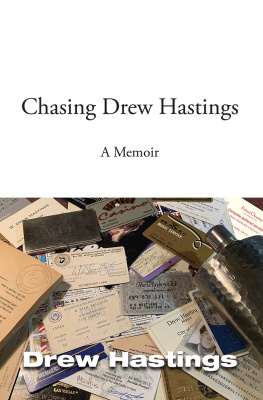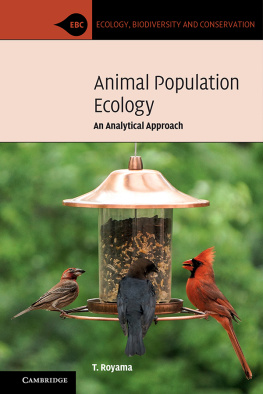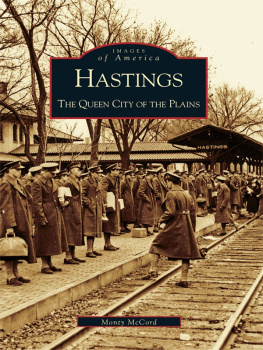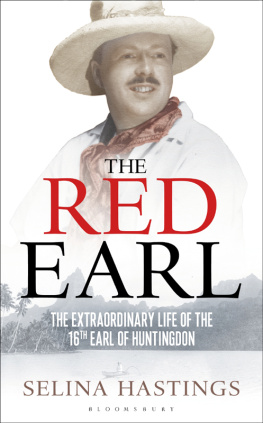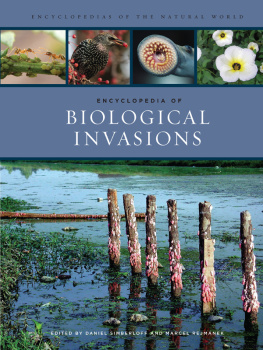THE STEPHEN BECHTEL FUND
IMPRINT IN ECOLOGY AND THE ENVIRONMENT
The Stephen Bechtel Fund has
established this imprint to promote
understanding and conservation of
our natural environment.
The publisher gratefully acknowledges the generous
contribution to this book provided by the Stephen
Bechtel Fund.
ENCYCLOPEDIA OF
THEORETICAL ECOLOGY

ENCYCLOPEDIA OF
THEORETICAL ECOLOGY
EDITED BY
ALAN HASTINGS
University of California, Davis
LOUIS J. GROSS
University of Tennessee, Knoxville

University of California Press, one of the most distinguished university presses in the United States, enriches lives around the world by advancing scholarship in the humanities, social sciences, and natural sciences. Its activities are supported by the UC Press Foundation and by philanthropic contributions from individuals and institutions. For more information, visit www.ucpress.edu .
Encyclopedias of the Natural World, No. 4
University of California Press
Berkeley and Los Angeles, California
University of California Press, Ltd.
London, England
2012 by The Regents of the University of California
Library of Congress Cataloging-in-Publication Data
Encyclopedia of theoretical ecology / edited by Alan Hastings,
Louis J. Gross.
p. cm.
Includes bibliographical references.
ISBN 978-0-520-26965-1 (cloth : alk. paper)
1. Ecology--Encyclopedias. I. Hastings, A. (Alan), 1953- II. Gross,
Louis J.
QH540.4.E526 2012
577.03--dc23
2011027208
Manufactured in China.
19 18 17 16 15 14 13 12
10 9 8 7 6 5 4 3 2 1
The paper used in this publication meets the minimum requirements of ANSI/NISO Z39.48-1992 (R 1997) (Permanence of Paper). 
Cover photographs: Coral-dominated reef, Bent Christensen/Azote.se. Insets, from left: Glanville fritillary butterfly (Melitaea cinxia), from Robinson R. (2006): Genes Affect Population Growth, but the Environment Determines How. PLoS Biol 4/5/2006: e150 http://dx.doi.org/10.1371/journal.pbio.0040150 ; aspen grove, Fishlake National Forest, Utah, photo by Mark Muir, courtesy U.S. Forest Service; crab among coral (Trapezia rufopunctata), courtesy Adrian Stier; A. coelestinus, courtesy Duncan J. Irschick.
Title page photo: Images from nature have inspired many studies in ecology and evolution, yielding important theoretical insights. Here tropical army ants (Eciton burchellii) cooperate to form a bridge over one another on Barro Colorado Island, Panama. Images like this are a fertile source of hypotheses and testing, suggesting possible theoretical approaches to the understanding of such topics as colony formation and demography, movement ecology, and spatial dynamics. Photograph by Christian Ziegler/STRI.
CONTENTS

Peter A. Bednekoff
J. A. J. Metz
Max Shpak
Tim Benton
Caz M. Taylor
Andrew J. Kerkhoff
Robert D. Holt
Cleo Bertelsmeier; Elsa Bonnaud; Stephen Gregory; Franck Courchamp
James A. Drake; Paul Staelens; Daniel Wieczynski

Kiona Ogle; Jarrett J. Barber
B. D. Roitberg; R. G. Lalonde
James Umbanhowar
Louis W. Botsford
Fabio Dercole; Sergio Rinaldi
Benjamin Z. Houlton
Christopher J. Dugaw
John C. Moore; Peter C. De Ruiter
Linda J. S. Allen

Alan Hastings
David E. Hiebeler
Robert F. Costantino; Robert A. Desharnais
Brian D. Inouye
Donald L. DeAngelis
Stuart H. Gage
H. Reit Akakaya
Brian A. Maurer
Matthew R. Zimmerman; Richard McElreath; Peter J. Richerson

Yang Kuang
Charlotte Lee
Jim M. Cushing
Ram Ranjan; Jason F. Shogren
Giulio De Leo; Chelsea L. Wood
Gabriela Yates; Mark S. Boyce
Marissa L. Baskett
Helene C. Muller-Landau
Anne Chao; Lou Jost
Michael Bode; Hedley Grantham

Sunny Jardine; James N. Sanchirico
Yiqi Luo; Ensheng Weng; Yuanhe Yang
Kim Cuddington
Fiorenza Micheli; Anne Guerry
Stephen Polasky
Valery Forbes; Peter Calow
S. A. L. M. Kooijman
Gordon A. Fox; Bruce E. Kendall; Susan Schwinning
Lisa Sattenspiel
Richard McElreath
James W. Haefner

Michael W. McCoy; Christine Holdredge; Brian R. Silliman; Andrew H. Altieri; Mads S. Thomsen
Elliott Lee Hazen; Larry B. Crowder
Kevin McCann; Gabriel Gellner
Axel G. Rossberg
Thomas Caraco
Michael C. Dietze; Andrew M. Latimer
N. Thompson Hobbs
Duncan J. Irschick; Chi-Yun Kuo

Karl Sigmund; Christian Hilbe
Jocelyn L. Aycrigg; J. Michael Scott
Dennis Baldocchi
Michael F. Goodchild

Wayne Marcus Getz
John L. Largier

Steven F. Railsback; Volker Grimm
Subhash R. Lele; Mark L. Taper
Arnold J. Bloom
Mark Kot; Mark A. Lewis; Michael G. Neubert
Mark A. Lewis; Christopher L. Jerde

Jianguo Wu

Leah R. Gerber; Tara Gancos Crawford; Benjamin Halpern
Louis J. Gross
Patricia Adair Gowaty
Eelke Jongejans; Hans De Kroon
Michael D. Jennions; Kerrie Mengerson
James F. Gillooly; April Hayward; Melanie E. Moses
Marcel Holyoak; Jamie M. Kneitel
Ilkka Hanski
Thomas G. Platt; Peter C. Zee; Keenan M. L. Mack; James D. Bever
Perry De Valpine
Paul R. Moorcroft
Brian Charlesworth

Anna Eklf; Stefano Allesina
Stephen P. Hubbell
John Odling-Smee
Howard V. Cornell
Cheryl J. Briggs
Roger M. Nisbet
Peter J. S. Franks

Christopher A. Edwards
Hien T. Tran
Sebastian J. Schreiber

Joshua L. Payne
Nicholas F. Britton
Shandelle M. Henson
Mario Pineda-Krch
Brian C. OMeara
Scott V. Edwards; Susan E. Cameron Devitt; Matthew K. Fujita
E. David Ford
Michael B. Bonsall; Claire Dooley
Next page

